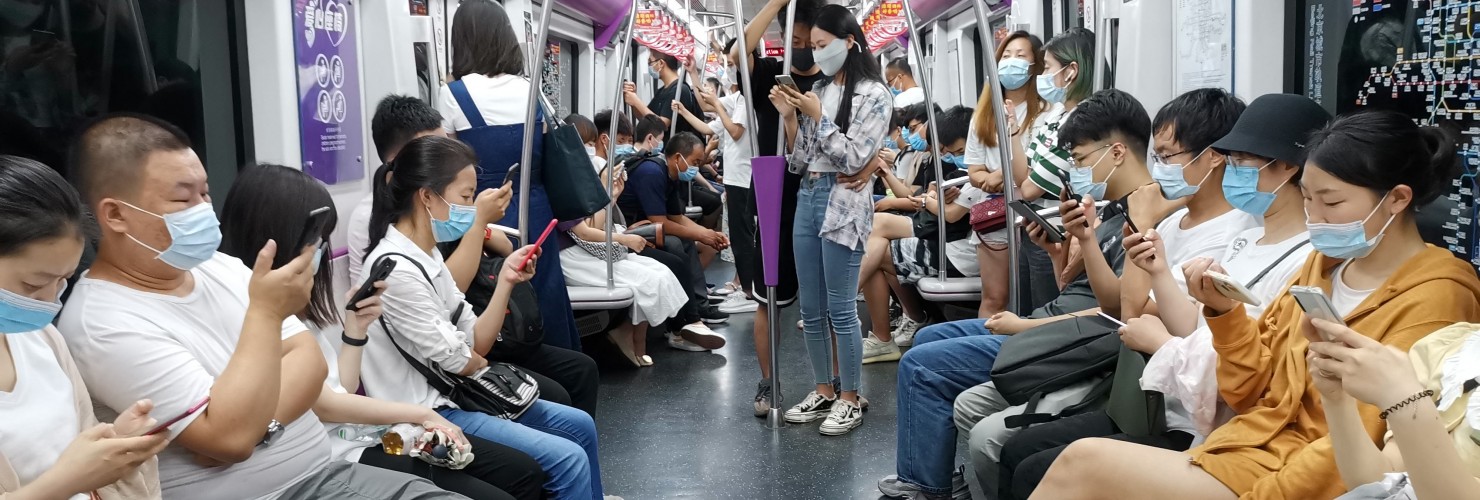

Beijing’s tech crackdown on ideological misalignment and drivers of inequality
China is tackling what it sees as the worst effects of its assertive capitalists, says Alexander Mac Dábhaidh. But it might take more to close the growing rich-poor divide.
China’s crackdown on its internet companies can be seen as a reaction to two symptoms of what the Chinese Communist Party (CCP) takes to be unfettered capitalism: growing alternative power bases and an increasing divide between rich and poor. Until recently, allowing some people to get rich first over everyone “getting rich together,” as Deng Xiaoping put it, was tolerated in the name of economic growth. But now the party has changed tack and is rooting out ideological misalignment and drivers of inequality in China’s internet sector. But it will find the economy’s now unwanted side effects hard to eradicate.
The internet-platform companies are deemed to be misaligned with party interests because they seek profit at any cost and have built up influence to challenge the CCP’s monopoly on power. Many have got the message and are orchestrating mea culpas, but these will likely not suffice. The party is using regulation to reassert its dominance over the private sector – so it wants to quash any corporate resistance to such profit-hindering policies. Last year, Alibaba’s Jack Ma criticized China’s financial regulators, a misalignment that resulted in authorities canceling Ant Group’s USD 37 billion initial public offering (IPO).
Reinserting the party into the private sector
Reinserting the party into the private sector is a way of tackling internet companies’ misalignment. The Chinese government has taken a stake and a board seat in ByteDance subsidiary Beijing ByteDance Technology in order to curb disloyalty and align corporate goals with those of the government. That followed a similar investment in Weibo subsidiary Beijing Weimeng Technology that provided the Chinese government with the right to appoint a director to the company's three-member board. Now there are rumors that China’s Uber-clone Didi Chuxing will suffer the same fate.
In parallel, the State Taxation Administration (STA) is investigating citizens who failed to disclose high incomes to evade taxes. As part of reforms agreed by the State Council in March, tax inspectors will step up their investigations of illegal tax practices. It will focus on investigating highincome and high networth individuals – although it has not revealed which individuals are under investigation or whether they have anything to do with big tech. But as many of China’s wealthiest citizens became rich through internet-related businesses, the STA’s probe should at least be keeping them on their toes.
Countering unwelcome monopoly capitalism
The tech crackdown is part of a wider campaign to counter unwelcome monopoly capitalism, in which competition gives way to monopolies in the hands of a few owners and income inequality jumps. In recent years, China has seen campaigns to help the lowest socio-economic groups through poverty alleviation and rural revitalization. Now, pressure is being applied to the highest socio-economic groups in Chinese society. Xi and the party have dusted off the concept of “common prosperity” and are applying it to the tech sector.
Xi in August told the Central Commission for Financial and Economic Affairs (CCFEA) that “common prosperity is the essential requirement of socialism.” China should “reasonably adjust excessive income and encourage high-income groups and enterprises to give back to society more.” The idea of “common prosperity” dates back to the early years of the People’s Republic. Xi alluded to it in 2017 when he spoke of tackling social inequality and announced a new “principal contradiction” in China’s development between “unbalanced and inadequate development, and the people's ever-growing needs for a better life."
China’s big tech companies have begun to adopt the rhetoric of “common prosperity” and to donate eye-watering sums to charitable causes. Some have adopted the term “tertiary distribution” as a mantra: mirroring today’s US philanthropic industry, whereby corporations and wealthy individuals extend assistance to low-income groups, responsibility for tackling wealth inequality is outsourced to the private sector. Donations that are meant to be more than symbolic are attempts to solve huge socio-economic inequalities, while maintaining or shoring up as many features as possible of the current economic system.
Pressure on big tech to help solve the wealth gap may not be enough
But the pressure on big tech to help solve the income and wealth gap may not be enough. Without reform of its preferential tax rates – as low as 10 percent – and practices of corporate tax avoidance, the tech sector will never do enough to help the party’s fight against inequality. This shows the huge gap that exists between the importance of the internet-platform sector as a force for the economic prosperity of the Chinese digital economy and the urgency the government sees in tackling the country’s growing inequality in income and wealth.
Beijing’s fight against the ideological misalignment of the internet sector may well prove successful, even if it comes at a cost to the country’s tech ambitions. The party not only wants to align the internet platform’s interests to CCP industrial policy. It aims to reduce the market dominance of China’s tech behemoths to foster greater competition and innovation. However, it remains to be seen what the long-term economic effects of the tech crackdown will be. The big question the Chinese government is surely trying to answer is how might these developments stifle innovation and economic growth, will their efforts at political alignment be confined to the tech giants, or can they afford to take root in smaller companies too. And if the party’s endeavors only target key players, perhaps they will expect to see a renewed sense of competition within the internet platform sector. This is surely something that will fervently be discussed at the upcoming Sixth Plenum.
About the author:
Alexander Mac Dábhaidh was research intern in the Politics and Society team and the International Relations team at MERICS from July to November 2021. Alexander majored in Politics and Chinese Studies and received his BA from Utrecht University, before doing his M.Phil in Chinese Studies at Trinity College Dublin. He gained Chinese language proficiency during his year at Zhejiang University.
The views expressed in this article are those of the author and not necessarily reflect those of the Mercator Institute for China Studies.
